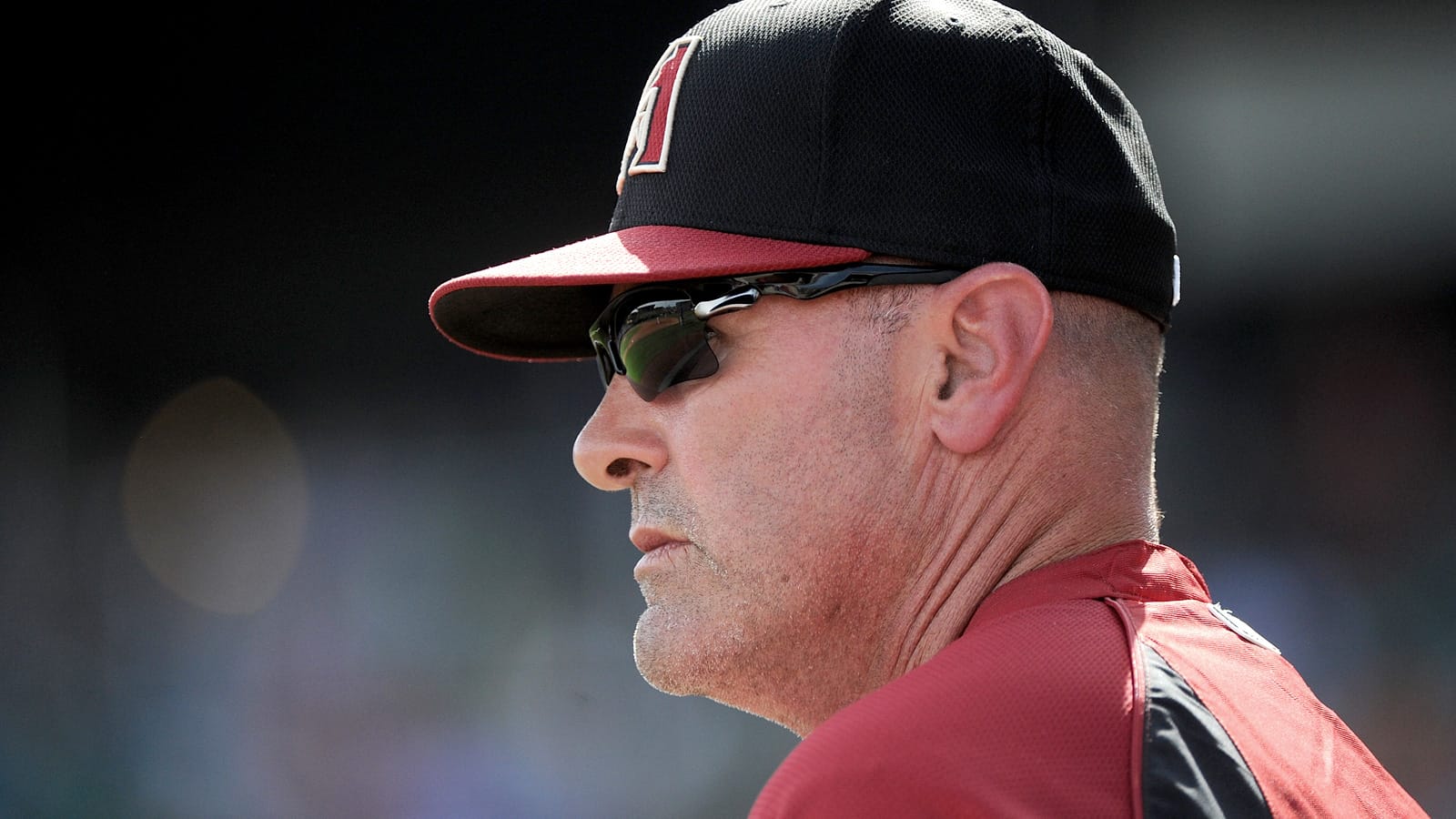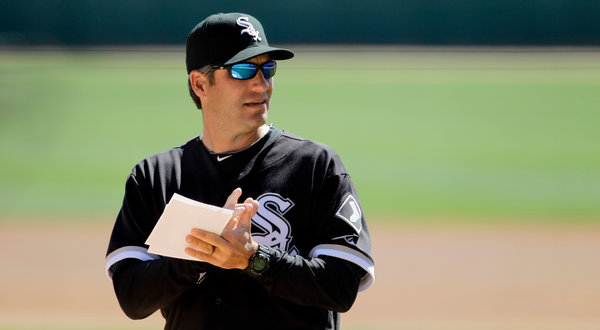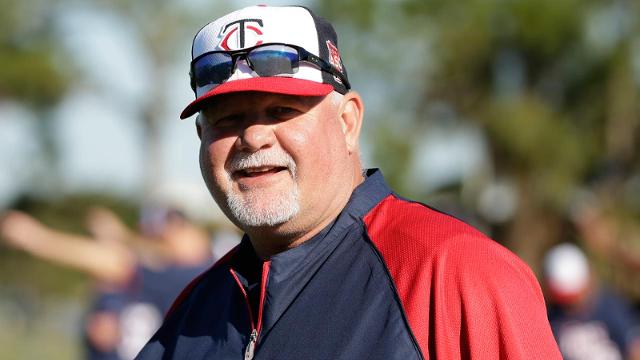
You see it every single season around MLB. Teams who were expected to perform at a much higher level end up falling completely off the map. And once the offseason rolls around, front offices search for some answers. Some of those answers come in the form of trading away veterans and attempting a mass rebuild.
Others are answered by firing the manager and moving in a completely different direction. From disappointing seasons in Arizona and Texas to consistent losing in New York and Minnesota, these five MLB managers should get their walking papers at some point this upcoming offseason.
Kirk Gibson, Arizona Diamondbacks

Career Record: 343-351 (.494)
When Gibson took over the Diamondbacks job halfway through the 2010 season they were nothing more than a fledgling last-place team facing a ton of uncertainty in the future. They were 17 games under .500 after firing A.J. Hinch and replacing him with this former World Series hero. The pitching staff was in complete shambles with Edwin Jackson and Dan Haren, both slated to be top-of-the-rotation guys, combined for a 13-18 record and an ERA over 4.80. And despite four different players putting up 20-plus homers, the Diamondbacks finished that season 32 games under .500 and in last place in the NL West.
So what Gibson did the following season was nothing short of amazing. Arizona won 94 games and earned the NL West title before falling to the Milwaukee Brewers in the NLDS. Despite that hard-faught series loss, it seemed everything was on the upswing for Gibson and the Diamondbacks.
But it has been downhill ever since. Arizona finished the last two seasons at .500 before falling back big time this year. It is currently 20 games under .500 and fighting to stay out of the division cellar. Much like in previous seasons, Arizona’s pitching has been a disaster. It ranks 25th in MLB with a 4.30 ERA and has allowed the fourth-highest batting average in baseball.
For a team that became contenders shortly after Gibson took over, the Diamondbacks have regressed at nearly every turn over the past three seasons. And Gibson will likely be the fall guy for their lack of success. After all, the young talent is there on this team. It’s now about putting everything together, which will likely come with a new manager in the dugout next season.
Robin Ventura, Chicago White Sox

Career Record: 207-242 (.461)
When the White Sox hired Ventura prior to the 2012 season, it made perfect sense. Why not bring in a player-friendly manager who had been with the team for an extensive period of time to replace the hot head that was Ozzie Guillen? In Ventura’s first season with the White Sox, they finished just three games out of first place.
Unfortunately for Ventura and the Sox, it was downhill from there. They finished 63-99 last season, their worst single-season record since 1970. The likes of Hector Santiago, John Danks and Dylan Axelrod finished with a combined 12-34 record. Meanwhile, veterans such as Adam Dunn and Paul Konerko combined to hit .231.
While the White Sox have been slightly improved this season, it shouldn’t be enough for Ventura to keep his job. They boast the third-higest bullpen ERA in baseball and have blown 40 percent of their save opportunities on the season. That’s one of the primary reasons Chicago is closer to last place than a playoff spot right now. And Ventura’s handling of the bullpen simply hasn’t done the team any favors. All this with a payroll of over $90 million.
Terry Collins, New York Mets

Career Record: 728-762 (.489)
Collins was a retread before he even took over the Mets managerial job back in 2011. He failed to earn a single playoff trip in six seasons as the Houston Astros and Los Angeles Angels manager. In addition to this, the move to hire him made little sense for a Mets team that was going to be relying on young talent moving forward. Both the Astros and Angels were veteran-laden teams with Collins at the helm.
Unfortunately for the Mets, it simply hasn’t worked out. They failed to win more than 77 games in any of Collins first three seasons with the team and are currently nine games under .500 and battling with the Philadelphia Phillies for last place in the NL East. Sure the Matt Harvey injury hurt this team, but they simply haven’t seen the necessary progression to reward Collins with a fifth season as their manager. They need to start anew with a younger, fresher face.
Ron Gardenhire, Minnesota Twins

Career Record: 1,053-1,015 (.509)
Gardenhire’s success in leading the small-market Twins to six playoff appearances should not be overlooked. He isn’t on this list because Minnesota is 5-21 in the playoffs during his 13-year tenure as the team’s manager. Instead, Gardenhire’s time has simply come to an end in Minnesota. Prior to 2014, the Twins failed to win more than 66 games in any of the previous three years. They are currently 14 games under .500 and in last place in the AL Central.
Some may conclude that Minnesota doesn’t have the necessary talent to succeed and that Gardenhire can’t get water from a rock. While this is very much true, he doesn’t figure to be in their long-term plans. 13 years is a long time for one someone to manage one team. At some point, the relationship needs to end for both sides to move on. As it relates to the Twins youth movement moving forward, they are better off moving on from Gardenhire and finding an up-and-coming manager to lead the way.
Ron Washington, Texas Rangers

Career Record: 659-600 (.523)
Washington has been the most successful manager in Rangers history. He has led the team two two World Series appearances and seems to have the respect of the players. Prior to 2014, Texas finished over .500 for five consecutive seasons under Washington.
In addition to this, it really is hard to blame the veteran coach for the disaster that has been the 2014 campaign. They currently have six different players on the 60-day disabled list. In reality, it’s been one of the worst injury-riddled seasons for a team in recent MLB history. With that said, the Rangers had not performed up to their talent in the two seasons prior to 2014. After losing to the St. Louis Cardinals in the 2011 World Series, Texas hasn’t won a single playoff game in what will be three seasons this upcoming October. That’s something that simply can’t happen for a team with a $136 million payroll.